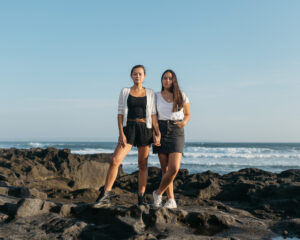
Melati Wijsen — Co-Founder of NGO Bye Bye Plastic Bags
Founded in 2013 by Melati and her sister Isabel at 10 and 12 years old, their NGO encourages people to stop using plastic bags.
Global
Julia Gordon 6/25/2024
After ten years of working as a nightclub promoter in New York City, Scott Harrison decided to quit his job and sell everything he owned. Unfulfilled by his work and the many vices that came with the job, Harrison moved to post-war Liberia to volunteer as a photojournalist with an organization called Mercy Ships, which tends to millions of individuals in Africa who do not have access to medical care.
His photos captured the reality of life in the impoverished and disease-ridden country that has no sewage or mail systems. But what struck him most was the wide-spread lack of access to clean water. Harrison watched countless people drink and bathe in dirty rivers and streams and he witnessed firsthand the results of waterborne illness. When he returned to NYC two years later, he had a mission.
charity: water, funnily enough, began in a nightclub. Harrison held his birthday at a venue and charged attendees $20 to enter. He promised to donate 100% of their money to solving the water crisis. This is what makes his organization unique — every dollar donated goes directly into funding sustainable water projects in neighborhoods that lack clean water. And he takes it one step further by sending photos and GPS coordinates to donors of the water projects they help fund.
Today, charity: water has completed over 154,000 water projects across the world that have brought clean water to over 18 million people. The organization partners with members of local communities to fund projects ranging from drinking water wells to sanitation systems to rainwater catchments. After these projects are built, charity: water continues to monitor, repair and improve them to ensure their lasting impact.
While access to clean water has immense health benefits, it also sparks educational and economic advantages. Young people can go to school without being thirsty and without worrying about the obstacles of not having toilets. Women can become entrepreneurs with the newfound time that exists when they do not have to walk miles for water daily.
charity: water’s global impact is undeniable, but Harrison isn’t stopping anytime soon. His goal is to provide clean water to every single human on the planet.
Mood of Living: Where did you grow up? Tell us a little about your childhood.
Scott Harrison: I was born in Philadelphia, in a middle-class family. I was raised in South Jersey. And when I was four years old, my mother walked across the bedroom on New Year’s Day 1980, and collapsed to the floor, unconscious. This led to the discovery of massive amounts of carbon monoxide in her bloodstream and a gas leak in our home. So, it was a very strange childhood. I grew up in a conservative Christian home in a caregiver role and I wanted to be a doctor when I grew up so that I could cure my mom and other sick people that I met with similar conditions.
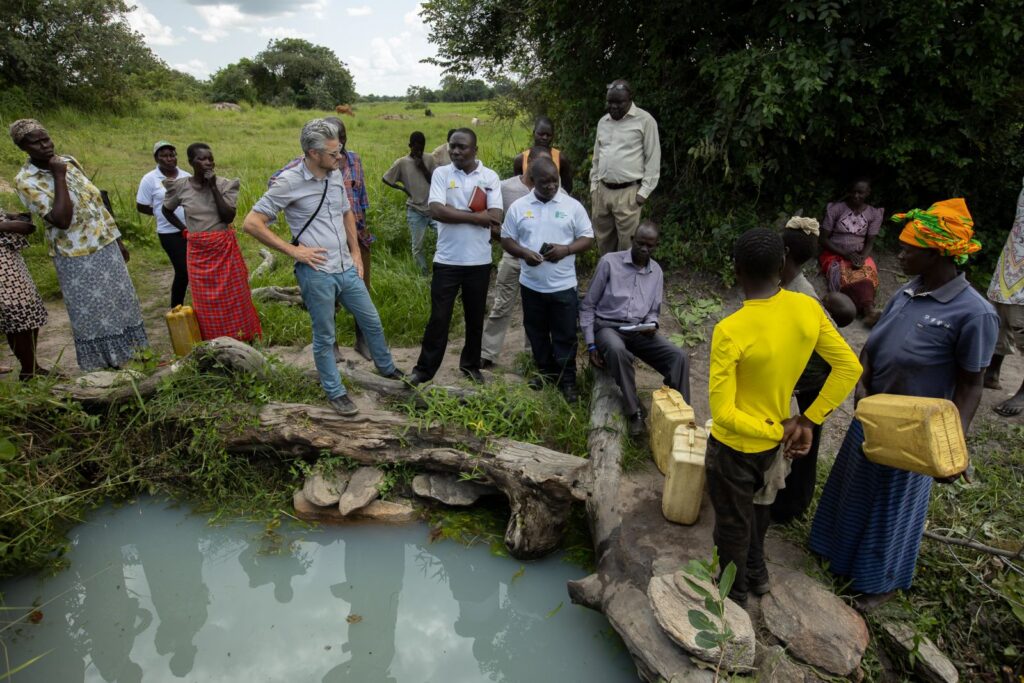
Scott Harrison.
MoL: You became very successful at an early age as a nightclub promoter. What drew you to this profession?
SH: At 18, instead of becoming a doctor, to the horror of my parents, I rebelled. I moved to New York City, and I became a nightclub promoter for the next ten years. I wanted to drink and smoke and sleep around and try drugs and do all the stuff that you were never allowed to do as a nice church kid.
I wound up getting very good at that profession and worked at 40 different nightclubs over a ten-year period. I also picked up all the vices you imagine would come with that territory, so dinner at 10 p.m., the club at 12 a.m., after-hours at 5 a.m., and go to sleep at noon the next day.
MoL: When and why did you decide to reevaluate your life and make a change?
SH: I kind of made a mess of my life from a moral and spiritual standpoint for ten years. At 28, I was in South America, in Punta del Este, Uruguay, on this opulent vacation and just had a real crisis of faith and a crisis of conscience. I realized that slowly, and then suddenly, I had become that worst person that I knew.
I was morally bankrupt, spiritually bankrupt, and emotionally bankrupt. I hated my life, and if I died, the only thing they would have put on my tombstone was, ‘Here lies a man who got a million people drunk.’ So, I had a pretty radical life transformation and I asked myself, ‘What would the opposite of my life look like?’ I decided to sell everything I owned and volunteer with a humanitarian organization for one year.
MoL: Why did you go to Liberia? How did your experience working with the surgeon Dr. Gary Parker on the Mercy Ship change your life? What did you do there?
SH: I applied to ten or so organizations and (got rejected by) ten or so organizations because they didn’t know what to do with a nightclub promoter. They were all serious Doctors Without Borders doctors, not nightclub promoters. But I was very fortunate that one mission said, ‘Hey, if you’re willing to pay us $500 a month, and if you’re willing to go live in post-war Liberia, we will take you on our mission as a volunteer photojournalist.’ I had gotten a degree at NYU going part-time, I’m a decent photographer, decent writer, and I convinced this organization to let me join their mission.
It was called Mercy Ships, and they operated a 522-foot hospital ship that sailed up and down the African coast bringing some of the best doctors in the world to people who had no access to medical procedures and surgeries. So that was really where I got my start. I quit smoking and drinking and drugging and gambling and vowed to never look at another pornographic image as long as I lived and wanted to massively reimagine my whole life at 28 years old.
I sailed to West Africa on a ship with a couple of cameras and over the next year began documenting life in the poorest country in the world. A country with no running water, no sewage, no mail system. There was one doctor for every 50,000 people living in the country. And we would turn up with our doctors and 5,000 people would be standing in a parking lot outside of a stadium where we would triage the sick. We would turn away thousands and thousands of sick people because we didn’t have enough doctors.
After taking 1,000 photographs that first year and meeting extraordinary people, both the surgeons who had come from 40 countries and the patients who had courageously hung onto hope in a country with no access to medical care, I signed up for a second year because I didn’t know what was next.
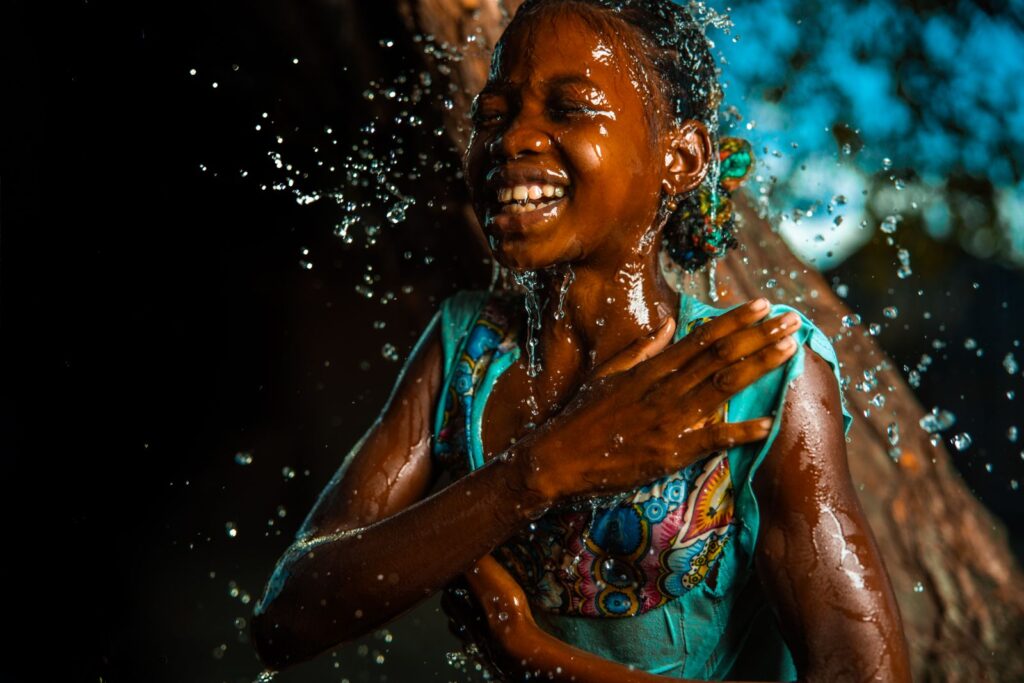
MADAGASCAR
MoL: When did you become aware of the dire water crisis in Liberia? How did this awareness change your life and direct you to your purpose?
SH: It was in that second year that I realized that the dirty water people were drinking in the country was the source of half of the sickness. And I learned two simple things: 50% of the country was drinking from swamps and ponds and rivers and 50% of disease in the country was waterborne. So at the end of the second year, I felt like I had an issue that I wanted to spend the rest of my life trying to solve. And I came back to New York City at 30 years old with a very simple life mission: I’m going to try to bring clean drinking water to every single human alive before I die. That was 17 years ago.
MoL: What was it like to return to New York after two years in Liberia?
SH: I hate the word “culture shock” but I think that was really a true definition of the experience. I remember being in Liberia and buying a $16 giant bag of rice that would feed a family of four for a month, landing in New York hours later, going straight to visit my friends on the roof of the Soho House, and somebody bought me a $16 margarita. One drink was food for four for a month. I had a lot of experiences like that.
NEPAL
MoL: What were the first steps to creating charity: water?
SH: I started a non-profit organization, and I wanted the organization to be different because I realized, so many people didn’t trust charities. I came up with the idea to fund all of the overhead for the organization separately and to make a promise that 100% of anything we would ever raise from the public would go directly to fund clean water projects. And I promised people that we would prove where their money went by sending them photos and GPS coordinates of the water projects that we built.
So, day one, the only idea I had was to throw a party at a nightclub. I got a club and an open bar donated. I emailed every single person I’d ever met, and I made them donate $20 to get inside the club. And that first night we collected $15,000, we took 100% of the money up to Northern Uganda and we built charity: water’s very first well. And then what was really cool was we sent the photos and the GPS coordinates back to those 700 people who had given $20 and we said, ‘Here’s exactly where your money went.’ And I think what we realized was just how rare that was, that a charity would report back to its constituents on impact and use 100% of their money. And that was about 152,000 wells ago.
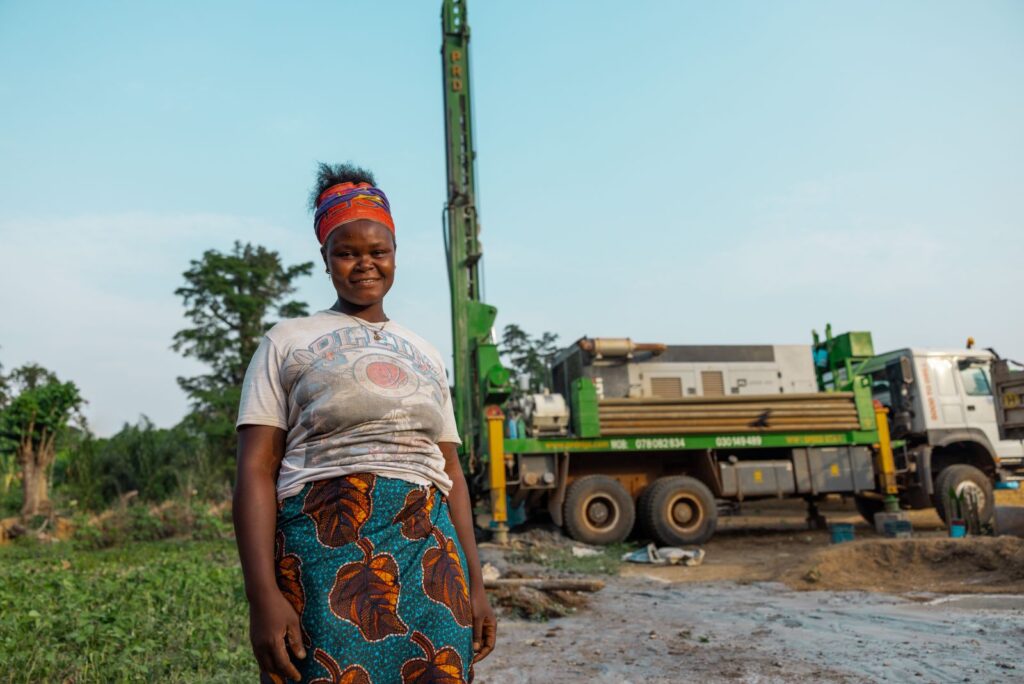
SIERRA LEONE
MoL: How do your water projects work? How are you meeting the needs of people around the world who do not have access to clean drinking water? What countries/communities is your organization helping now?
SH: We employ thousands of locals around the world now across 22 nations, and we believe for the work to be culturally appropriate and sustainable, it should be done by the locals in each of these countries. charity: water goes out and identifies the areas of greatest need — we work in rural areas which is where 80% (of people) without clean water on Earth live. And we work with local partners, we identify the needs and then we fund a range of solutions, about ten different technologies, anything from filtration systems to drilling wells to building rainwater harvesting systems to massive multi-million-dollar gravity-fed solar systems. In the end, we prove every single project after it’s completed and we send our donors the information.
MoL: How do you maintain your water projects and ensure that they are functioning and sustainable over time?
SH: One of the biggest problems in this sector is broken projects. I wanted to make sure that charity: water was leading the way when it came to sustainability. What good is it if you build a well and then it breaks and people are back with the same dirty water?
We got a 5-million-dollar grant from Google, and we started creating smart wells that would report back how much water was flowing. So, we have about three different sensors in various stages of research and development. We also started building mechanics teams who would travel through the country and make maintenance visits. Think of this kind of like Geek Squad or AppleCare for wells.
So, one of the most important things for us is to guarantee that clean water is going to flow. I think that a project needs to last at least ten years or more. So, think of it as a well with a decade-long warranty. We really hope that a project would be then upgraded to a higher quality source of water, maybe clean water in the house or water showers and toilets in the house, over those ten years.
ZIMBABWE
MoL: How do you make sure there is no political corruption in the communities you help?
SH: It’s remarkable how few instances we’ve had hearing about conflict around water, or warlords trying to take over the water system. One of the biggest challenges is that communities are too generous with their water. They’ll overburden their water plant because they want to share it with all their neighbors. So, we now try to build enough water projects for everybody in a region before we move on. The biggest challenge honestly is well-intentioned work sometimes done incorrectly.
MoL: Aside from the health benefits of access to clean water, what are other positive outcomes you’ve seen in the communities you’ve helped? How does providing clean water help people get out of poverty?
SH: We build a lot of water projects and toilets at schools. Water and sanitation are really important, they go hand in hand. Not having water in toilets at schools is one of the top reasons, and in some countries the very top reason, why teenage girls drop out of school. They stay home four or five days a month, they fall behind in their studies, and there are already enormous social pressures for these girls to go and get their water and get the firewood or help around the house. A huge focus of charity: water is water in schools.
There’s an economic component to water when it comes to women. I remember this crazy stat when I started charity: water that 40-billion hours were wasted by women, just in Africa every year, walking for water. So, you have women walking seven hours a day, seven days a week. And we found that when we can give them, not just clean water, but that time back, they become entrepreneurs. They sell things at the market, and they earn income selling rice or peanuts or making bricks. There’s a huge economic benefit and it’s driven by the women who use that time for labor.
There’s also a climate piece to this. The communities around the world without clean water are the most vulnerable to a change in climate and they produce the least amount of carbon. Giving them a source of clean water makes them far more resilient to the increase in droughts and floods that we’re seeing.
TANZANIA
MoL: What are the financial challenges of running a non-profit? How have you convinced so many people to support your mission?
SH: It’s hard raising money for something that doesn’t affect people. I bet none of your readers have ever experienced drinking dirty water. Or walking seven hours a day to collect dirty water. So that is challenge number one. If you’re running a cancer charity, 100% of readers would have an experience with cancer, through a family member, a friend, or a coworker. A lot of people are surprised by this, but only 4% of American philanthropy goes overseas. 96% of all the giving stays here. It’s a little bit of a challenge when we’re saying ‘Hey, help your neighbor in need over there, overseas.’
That said, we’ve raised almost a billion dollars thanks to the generosity of more than two million people around the world. charity: water is powered by small donations by people who are a part of our monthly program, ‘The Spring,’ which has been driving a lot of growth. That’s kind of like Netflix or Spotify for clean water. You don’t get movies or TV, you don’t get music, but you give every single month and other people around the world get the most basic needs for life.
So, it’s incredibly difficult but we go out there and we tell the story and invite people to reject the apathy that would be so easy to embrace with any of these paralyzing global issues. We say, ‘You can do something.’ For only $40 you can bring clean water to one person and know that 100% of your $40 will go directly to a person in need.
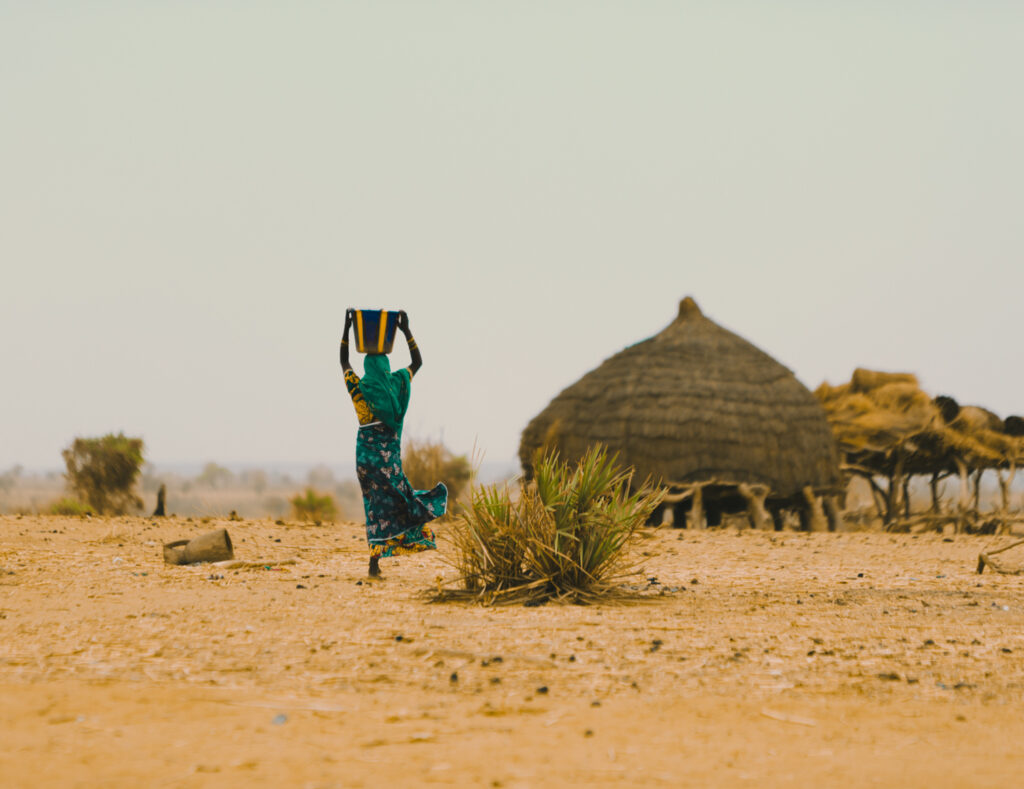
NIGER
MoL: Who are the people and organizations who have supported charity: water from the beginning and continue to support your organization now?
SH: We’ve worked with fashion brands like Saint Laurent, we’ve worked with beauty brands like Aveda, we’ve worked with the Googles and Apples of the world. We have worked with a group of dentists who raised almost ten million dollars for clean water through 1,500 dental offices around the world, a group called Smile Generation. We’ve worked with car washes who will send in enough money just to buy one water project. It’s a mix of global Fortune 50 businesses and small businesses.
MoL: How did your birthday initiative start and how did it grow?
SH: charity: water started on my birthday, and it was a party in a nightclub that raised $15,000. And then on our second anniversary, I was turning 32 and I said, ‘I don’t need to throw myself a birthday party and I don’t want to go back to a club again, what if I just asked everybody I know for $32?’ Everybody I know had $32 that they could donate, especially if 100% of the money went to help people. So, I took that campaign online and I raised almost $70,000.
Then I asked other people, really everybody I knew, if they would donate their birthday. Seven-year-olds asked for $7 and 89-year-olds asked for $89. That birthday movement, which is still going on today, along with other fundraisers accumulated well over 100 million dollars to bring clean water to millions of people.
MALAWI
MoL: Can you tell me a bit about Rachel Beckwith? Who was she and how did she contribute to charity: water?
SH: Rachel had heard me speak at her church in Seattle, which had raised money for charity: water in a very unconventional way. They hired a local rock band to play and sold tickets. Rachel was there, she heard about the birthday idea when I spoke, and she was turning nine, so she donated her ninth birthday. She wanted to raise $300. Sadly, she fell short and only raised $220.
She was hard on herself. She told her mom that she thought she had failed, and that she would try harder the next year. But sadly, a couple weeks after her birthday, she was killed in a 20-car pile-up on the interstate. She was the only fatality.
Her pastor and her family wanted to honor her last wish, which was instead of hosting a birthday party or accepting gifts, for people around the world to donate. People started donating $9 in her honor. It started in her local church and the Seattle community, and it spread to the New York Times and the morning shows, and then to Europe, and then down into Africa. I will never forget how special it was to see that people in Africa were donating $9 in her memory.
She wound up not only raising 1.2 million dollars in donations but inspiring another two million dollars in donations because people gave up their birthdays following her lead. This little girl was now responsible for more than 100,000 people getting clean water because she considered other people more important than her party or her gifts.
ETHIOPIA
MoL: What advice can you give to people who want to change the trajectory of their lives but don’t know how? How can one discover the courage to leave everything they have built behind for a more purposeful life?
SH: To put it plainly, I lived very selfishly. It was about money, cars, and status. It was all about the wrong things. It was not about others; it was all about me. When I shifted my focus, almost 20 years ago, to a life of service, there was such a freedom that came with that. One of my favorite quotes is from an ancient text and it says, ‘Do not be afraid of work that has no end.’ I love the idea of the endless work of serving others. The endless work of using what you’ve been blessed with to end the needless suffering in our local community, or in our case, the global community. And there’s no finish line, there’s no drop-the-mic moment where you can just say, ‘I’ve done enough.’ But if you pursue an intention of your life like that, if you pursue service, you get to wake up one day and say ‘Wow, I did a lot more than I ever thought I could have achieved for others.’
Photography courtesy of charity: water

Founded in 2013 by Melati and her sister Isabel at 10 and 12 years old, their NGO encourages people to stop using plastic bags.
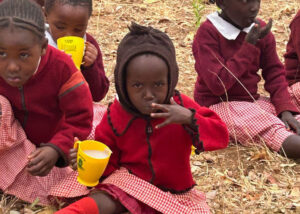
Leading the Foundation’s investments in Africa, transforming food systems for children that increase access to nutritious foods.
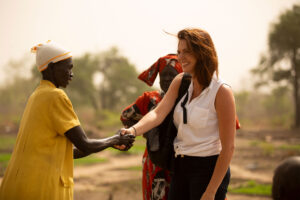
Founder Treana Peake, supports artisan partnerships and funds development work through the Obakki Foundation.